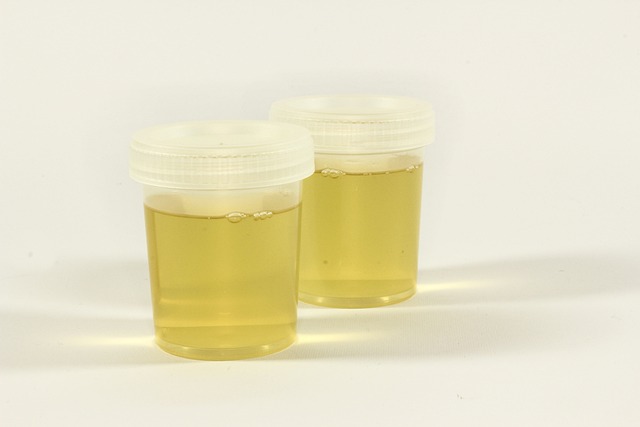Hemoglobinuria: Key Warning Signs to Be Aware Of
Hemoglobinuria is a rare but serious condition that may silently signal underlying health issues. While often unnoticed in early stages, certain unexpected symptoms could point to a more significant problem. Understanding these signs is essential for timely diagnosis and treatment. This article uncovers the key warning signals of hemoglobinuria and what they could mean for your health.

What Are Early Signs of Hemoglobinuria You Might Overlook?
The earliest signs of hemoglobinuria can be surprisingly subtle, making them easy to dismiss or attribute to other causes. The most obvious indicator is a change in urine color, ranging from pink or red to dark brown or black. However, this discoloration might not always be immediately apparent, especially in cases of mild hemoglobinuria.
Other early warning signs include unexplained fatigue, weakness, and shortness of breath during normal activities. These symptoms occur because the breakdown of red blood cells reduces the body’s oxygen-carrying capacity. Some patients also experience back pain, particularly in the lower back region, which can be mistaken for muscle strain or kidney issues.
Morning symptoms tend to be more pronounced in cases of nocturnal hemoglobinuria, where patients may wake up feeling unusually tired despite adequate sleep. Headaches, dizziness, and pale skin are additional early indicators that many people overlook or attribute to stress or poor sleep habits.
How Hemoglobinuria Could Indicate a Deeper Health Issue?
Hemoglobinuria often serves as a warning sign for several serious underlying conditions that require immediate medical intervention. Paroxysmal nocturnal hemoglobinuria (PNH) is one of the most serious causes, representing a rare blood disorder where red blood cells become vulnerable to destruction by the body’s immune system.
Other conditions that can trigger hemoglobinuria include autoimmune hemolytic anemia, where the immune system mistakenly attacks healthy red blood cells, and glucose-6-phosphate dehydrogenase (G6PD) deficiency, a genetic condition that makes red blood cells fragile. Certain infections, particularly malaria, can also cause massive red blood cell destruction leading to hemoglobinuria.
Kidney diseases, blood clotting disorders, and even intense physical exercise can trigger this condition. Some medications and toxins are known triggers as well, highlighting the importance of a comprehensive medical evaluation to identify the root cause.
Important Diagnostic Steps for Detecting Hemoglobinuria Early
Early detection of hemoglobinuria requires a systematic diagnostic approach that begins with a thorough medical history and physical examination. Healthcare providers typically start with a complete urinalysis to confirm the presence of hemoglobin in urine and rule out other causes of discolored urine, such as blood or certain foods.
Laboratory tests play a crucial role in diagnosis, including complete blood count (CBC) to assess red blood cell levels, hemoglobin concentration, and signs of anemia. Additional blood tests may include lactate dehydrogenase (LDH) levels, which tend to be elevated when red blood cells are being destroyed, and bilirubin levels to assess liver function.
More specialized tests might be necessary depending on initial findings, such as flow cytometry to diagnose PNH, Coombs test for autoimmune causes, or G6PD enzyme testing for genetic deficiencies. Kidney function tests and imaging studies may also be required to assess potential organ damage.
Myths About Hemoglobin in Urine and How to Approach Them
Several misconceptions surround hemoglobinuria that can delay proper treatment. One common myth is that red or dark urine is always caused by blood in the urine (hematuria), leading some people to assume it’s a simple urinary tract infection that will resolve on its own. However, hemoglobinuria is distinctly different and requires specific medical attention.
Another widespread misconception is that hemoglobinuria only affects certain age groups or demographics. In reality, this condition can occur at any age and affects people of all backgrounds, though certain genetic factors may increase susceptibility in some populations.
Some people believe that dietary changes or home remedies can effectively treat hemoglobinuria. While maintaining good overall health is important, hemoglobinuria typically requires professional medical treatment addressing the underlying cause. Self-treatment attempts can be dangerous and may delay critical interventions.
Why Prompt Medical Attention for Hemoglobinuria is Critical
Seeking immediate medical attention for suspected hemoglobinuria is essential because delayed treatment can lead to serious complications. When red blood cells break down rapidly, they can release substances that damage the kidneys, potentially causing acute kidney failure. This complication can be life-threatening and may require emergency dialysis.
The underlying conditions that cause hemoglobinuria can also progress rapidly without treatment. For instance, untreated PNH can lead to blood clots, which may cause strokes or pulmonary embolisms. Severe anemia resulting from ongoing red blood cell destruction can strain the heart and other vital organs.
Early intervention allows healthcare providers to identify and address the root cause before irreversible damage occurs. Treatment options vary depending on the underlying condition but may include immunosuppressive medications, blood transfusions, or bone marrow transplantation in severe cases. The sooner treatment begins, the better the chances of preventing long-term complications and achieving optimal outcomes.
Modern treatment approaches for nocturnal hemoglobinuria have improved significantly, with targeted therapies now available that can effectively manage symptoms and prevent complications. However, the success of these treatments often depends on early detection and prompt initiation of appropriate care.
This article is for informational purposes only and should not be considered medical advice. Please consult a qualified healthcare professional for personalized guidance and treatment.




